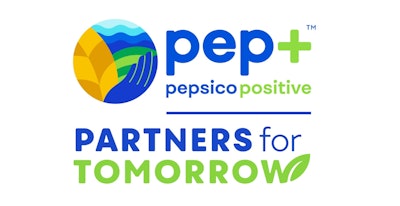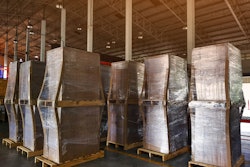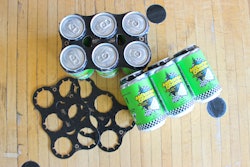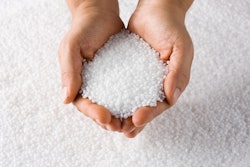PepsiCo has unveiled its new pep+ Partners for Tomorrow platform, developed to deliver solutions that aim to support its customers in achieving their sustainability goals. The initial launch will focus on U.S. customers, with plans to expand the program to key global markets by 2024.
As the company explains, Partners for Tomorrow will bring PepsiCo’s comprehensive customer sustainability offerings under a single platform to deliver the critical solutions most needed by the company’s partners and will work directly with them to implement the initiatives. These programs are in line with pep+ (PepsiCo Positive), a strategic end-to-end business transformation designed to drive long-term sustainable business performance and value, with sustainability and human capital at the center.
“PepsiCo has a long history of working together with our partners to advance shared sustainability goals. The Partners for Tomorrow platform aims to scale those solutions to foster the most effective partnerships and longstanding impact,” says Todd Squarek, senior vice president, chief sustainability officer for PepsiCo Beverages North America. “With this platform, we’re leveraging the shared scale of PepsiCo’s and our customers’ businesses to maximize impact, drive progress toward our pep+ goals, and benefit both our businesses, the planet and the communities we serve.”
At launch, Partners for Tomorrow programs include:
- CIRQU (the latest evolution of the PBNA-led program formerly known as BottleLoop): CIRQU includes the on-demand collection of recyclable beverage containers for foodservice and retail customers, which are then processed and reclaimed by PepsiCo to become recycled PET packaging. PepsiCo Beverages North America (PBNA) has partnered with Replenysh to make it easy and free for its customers to help ensure that plastic, glass, and aluminum containers are collected and recycled and that the recycled materials are integrated into the supply chain to be reused. The program was expanded in 2022 to serve five times as many communities, compared to 2021. There are currently over 250 host locations actively collecting material across 10 states and 58 communities.
- Reusable Cup Solutions: PepsiCo is piloting several reusable cup solutions with partners in select markets in support of PepsiCo’s goal to have 20% of all beverage servings it sells delivered through reusable models by 2030. Most recently, PepsiCo kicked off a reusable cup pilot timed to the Oak View Group’s grand reopening of the newly renovated CFG Bank Arena in Baltimore, Md. Working with TURN, the system features gamification to incentivize event attendees to return the reusable cups after use. Previously, the PepsiCo Foodservice team developed branded aluminum “collector” cups in partnership with a leading convenience retailer and SodaStream ran a university on-campus pilot that paired SodaStream in home units for dorm rooms with a reusable SodaStream bottle that could be refilled at various locations across campus.
- Regenerative Agriculture: A Regenerative Agriculture program, which PepsiCo is calling sow+ Agriculture (Sow Positive Agriculture), is designed to enable PBNA and PFNA customers to make direct investments in efforts to convert agricultural land to regeneratively farmed acreage and to allow PepsiCo and its suppliers to drive progress toward regenerative agriculture goals. The investments will directly assist farmers through loans and grants with the aim to convert their land to new practices that help improve soil health, reduce erosion, and improve water quality. The program also provides a forum for convening industry influencers to discuss concepts, trends, opportunities, and risks around regenerative farming.
- North America Customer Sustainability Summit: PepsiCo’s annual North America Customer Sustainability Summit will educate and help enable PepsiCo’s customers to drive progress on their sustainability journeys by hearing from a range of internal and external thought leaders who have successfully collaborated to drive progress toward sustainability goals.
- pep+ REnew: Launched in 2022, the pep+ REnew collaboration is the first value chain partner initiative of its kind in the food and beverage industry and increases value chain partner access to renewable electricity as part of PepsiCo’s goal to achieve net-zero emissions by 2040. Because many small and medium businesses face challenges when trying to participate in the renewable electricity market, pep+ REnew is designed with two goals: to educate PepsiCo’s value chain partners about their renewable electricity choices, and to quicken the transition to renewable electricity through aggregate power purchase agreements (PPAs) and other renewable electricity procurement options.
Partners for Tomorrow is PepsiCo’s latest offering that complements a suite of customer capabilities, ranging from product innovation to insights.
“At PepsiCo and Frito-Lay, our retail customers are true partners, including when it comes to addressing the impacts of climate change,” says Cara Keating, chief customer officer, Frito-Lay North America (FLNA). “Through the launch of the Partners for Tomorrow platform and its robust portfolio of solutions, we are taking an important step forward in how we collaborate with our customers to progress toward critical sustainability goals, meet consumer demands, and, ultimately, drive commercial value together.”
Says PepsiCo, Partners for Tomorrow is one of the ways the company is working to drive progress toward its multiple pep+ sustainability goals, while at the same time helping customers achieve their goals. PepsiCo’s pep+ climate strategy focuses on everything in its supply chain, including manufacturing, agriculture, packaging, transportation, and vending and cooling equipment.
One of PepsiCo’s key projects in 2023 designed to drive progress against the its pep+ ambitions for packaging is to increase the amount of rPET used across several beverage brands, including offering Pepsi, Mtn Dew, and Aquafina products in bottles made from 100% rPET in multiple U.S. geographies. PepsiCo estimates that shifting to bottles made from 100% rPET reduces GHG emissions by approximately 30% per bottle. By 2030, the entire Pepsi-branded portfolio aims to phase-out bottles made from virgin plastics.



























